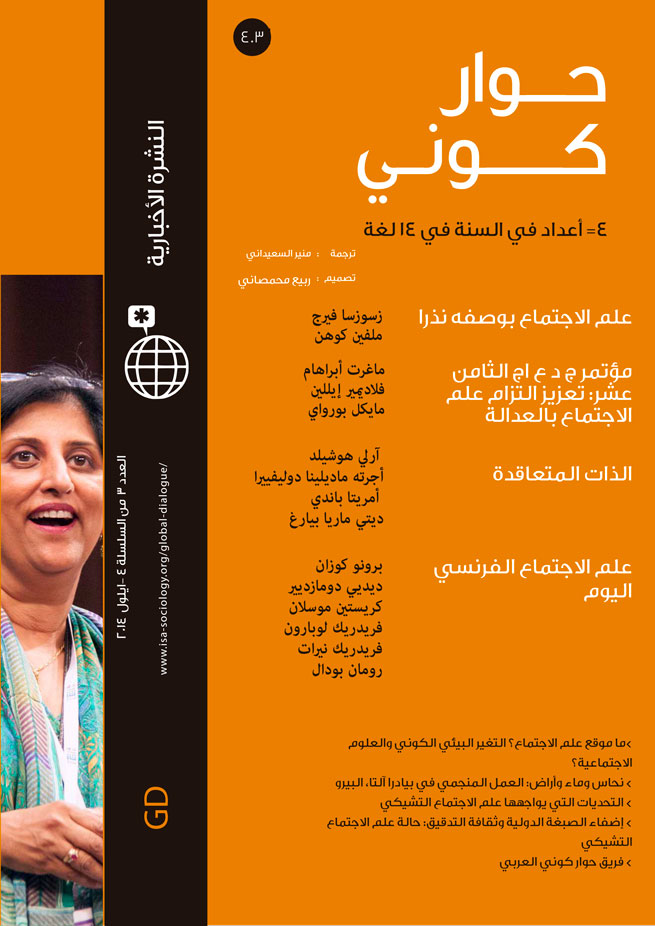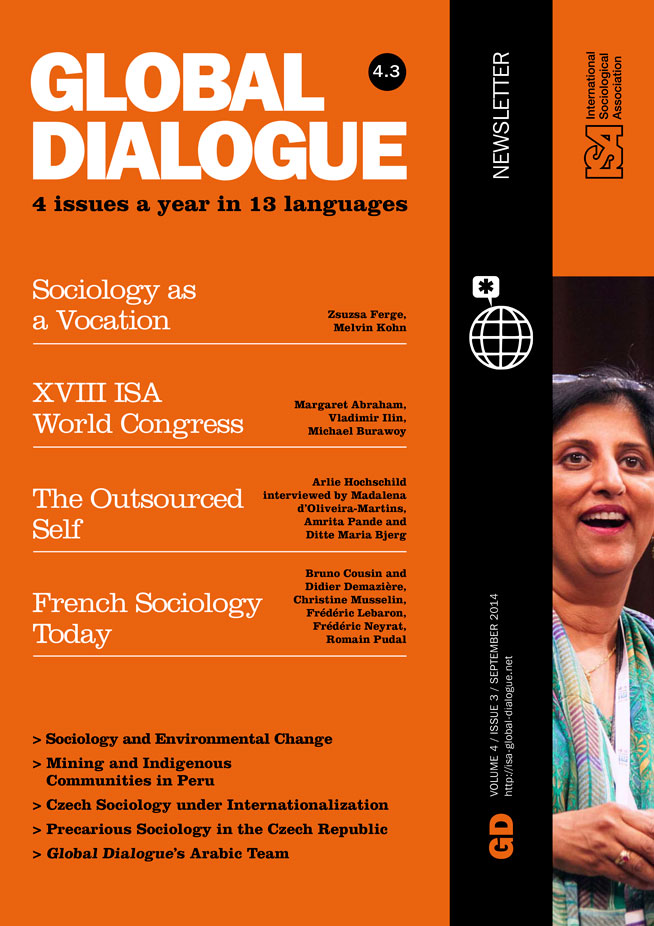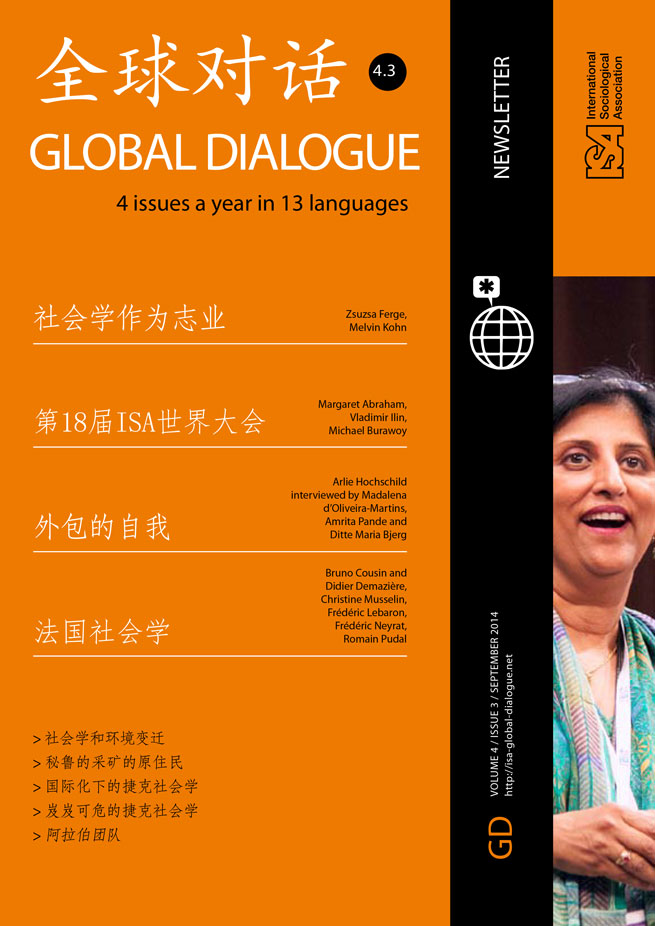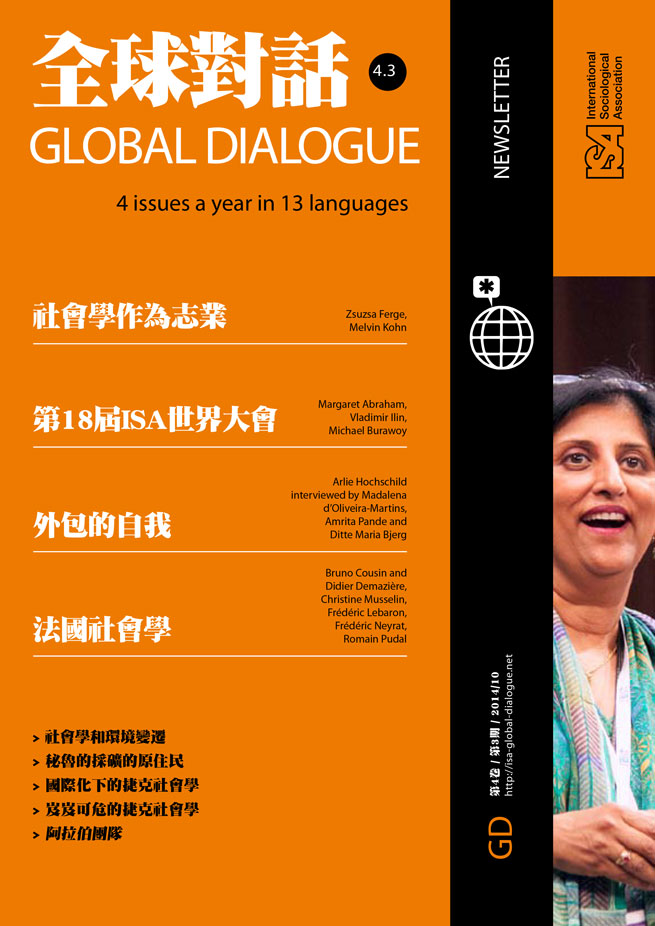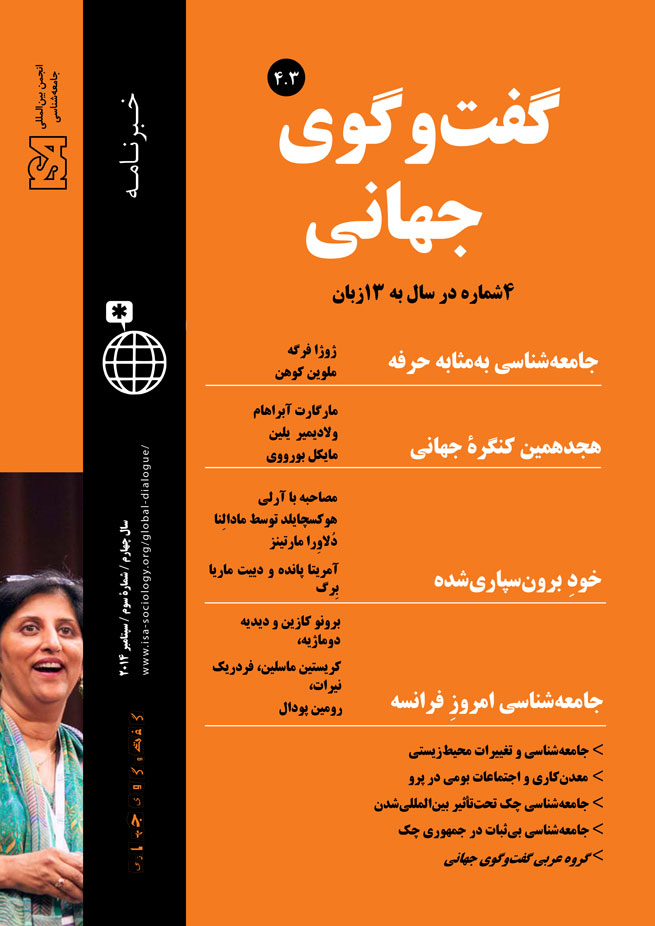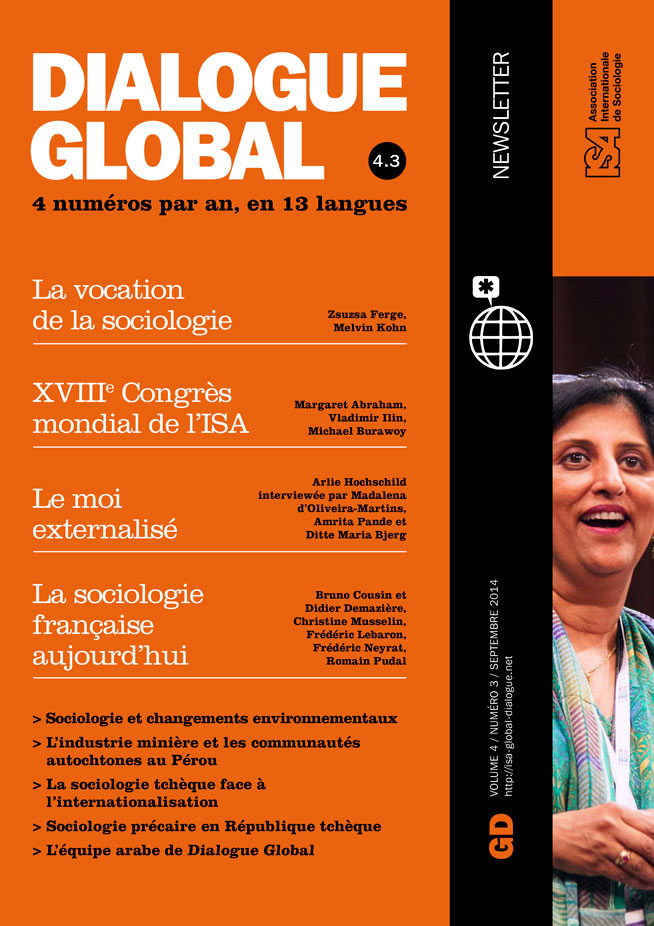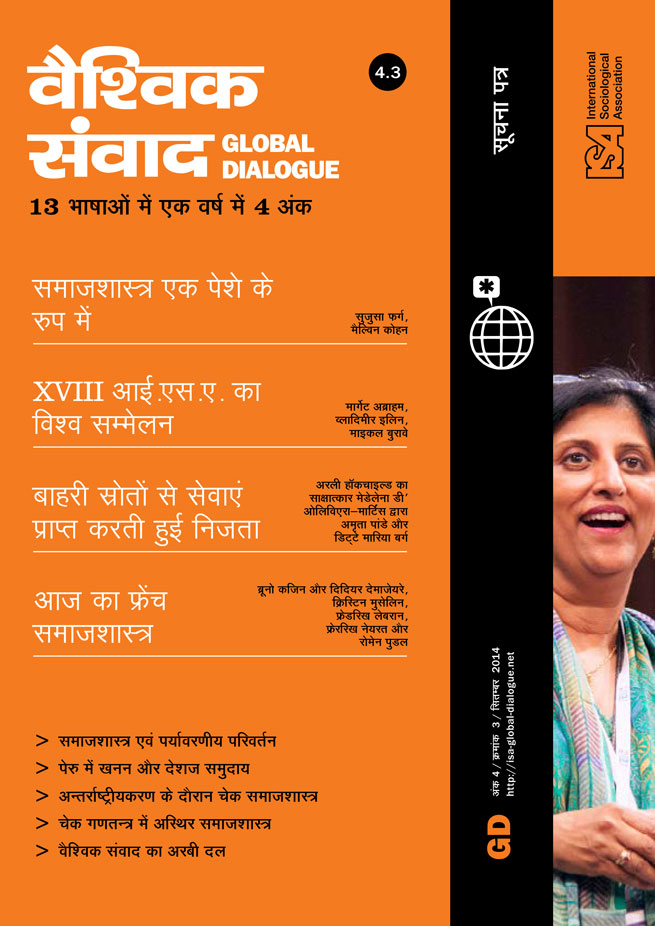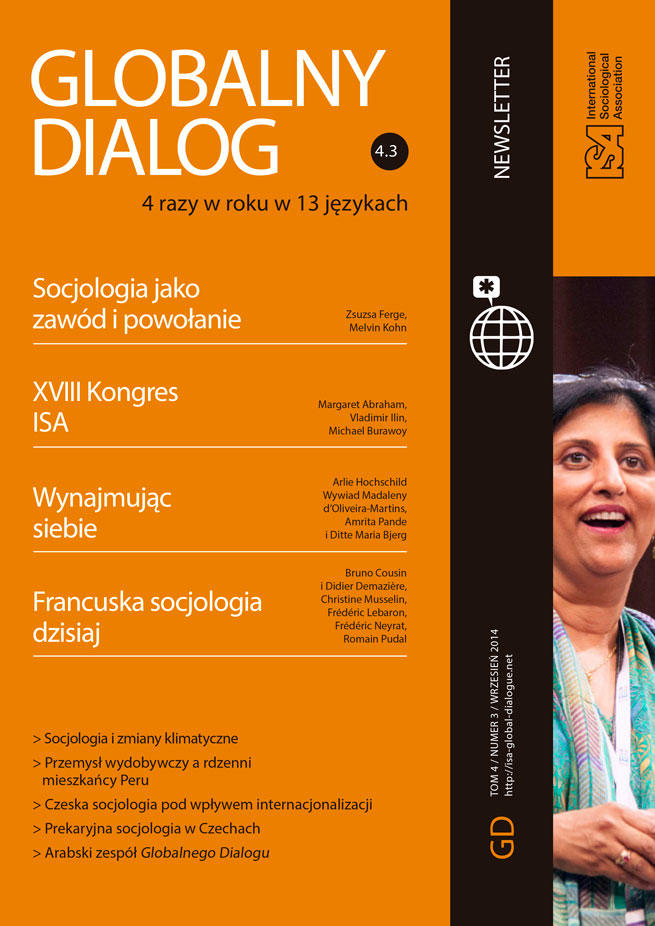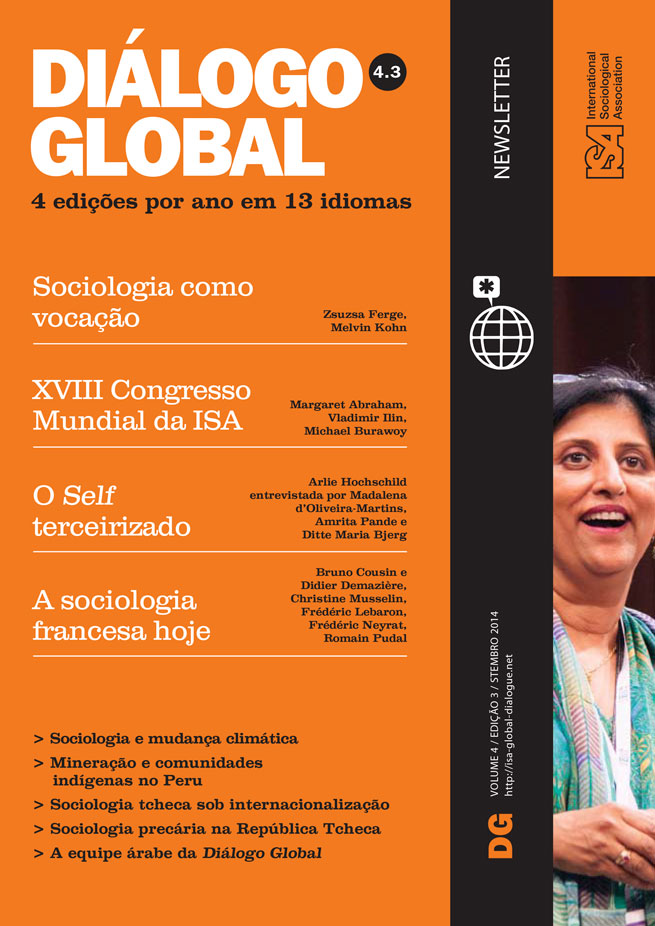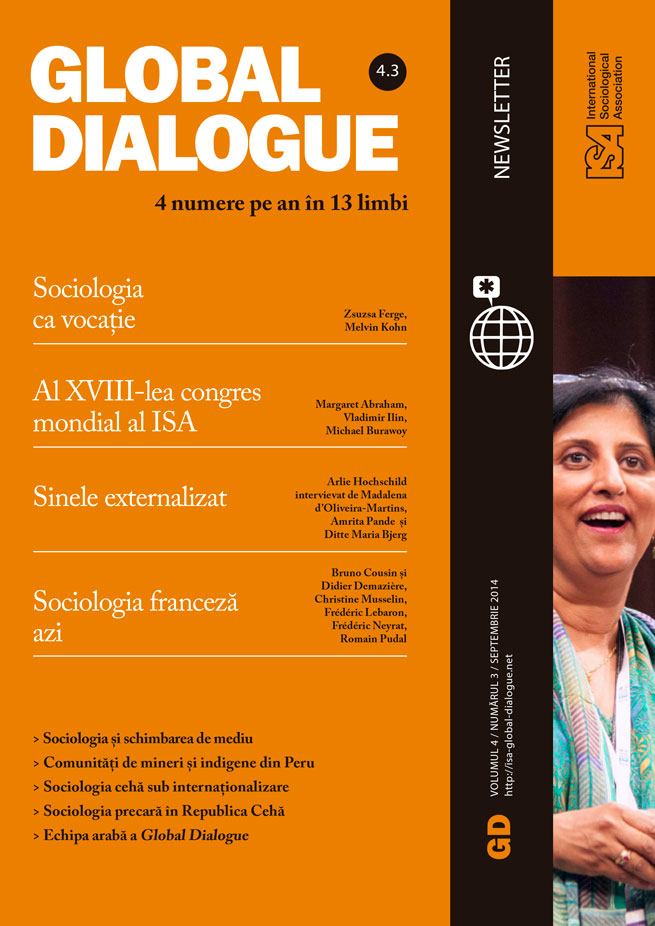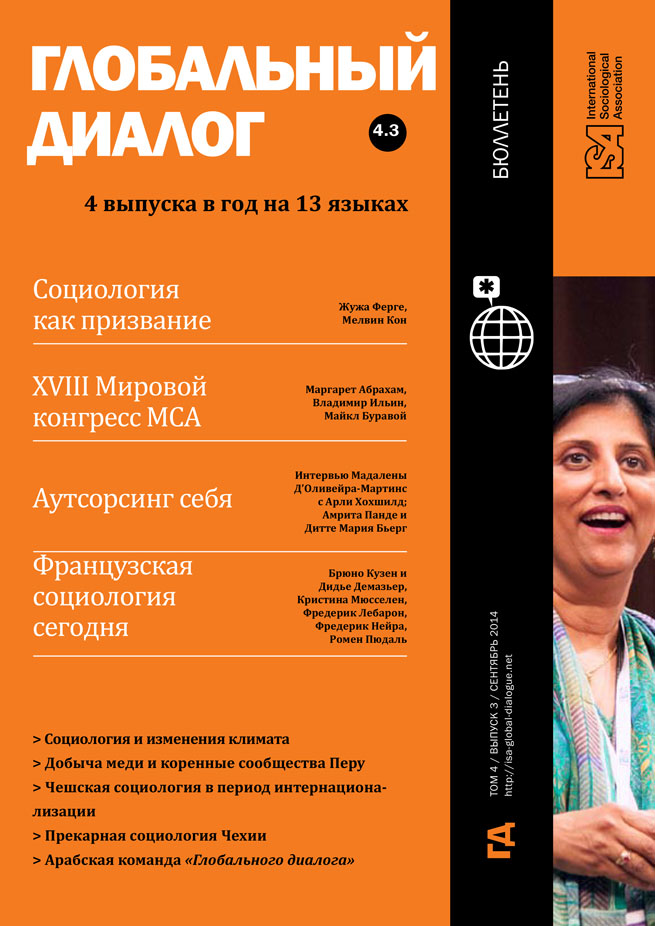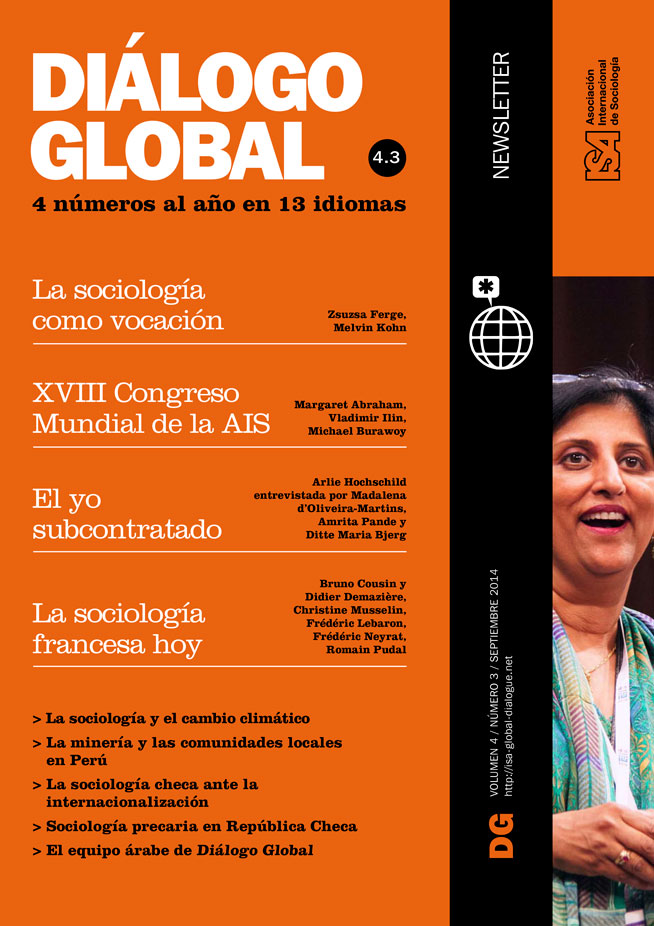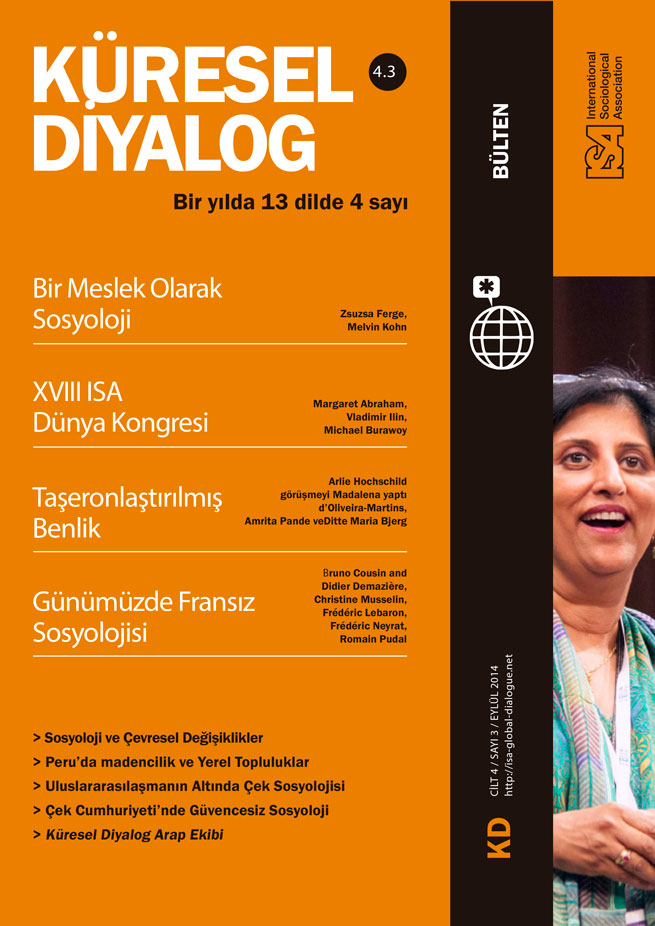Global Dialogue’s Arabic Team
September 08, 2014
At the end of February, 2011, Sari Hanafi emailed me asking if I can help him find translators for the Arab version of Global Dialogue. I saw this as one of the happy consequences of the Tunisian Revolution, only some weeks after the fall of Zein Al-Dine Ben Ali. Nevertheless, I wondered whether my English was good enough to do it personally. My attempts to find translators failed, so I decided to do it myself, yet via the French version which was already on the ISA website. For the next issue, three months later, I decided to do the job, translating directly from English into Arabic, which I’ve been doing ever since, with the friendly help of Sari. On my Facebook page I announce every issue so that Arab sociologists become aware of Global Dialogue in Arabic. My English gets better and better, and translation quenches my thirst for sociological knowledge, through this access to a wide range of texts and references from all over the world. Translating field experiences from all over the world, learning about new theoretical approaches as well as the latest sociological research, has been very instructive. So I learn a lot as I translate Global Dialogue into Arabic. The meeting of National Associations of Sociology in Ankara in 2013 was a great opportunity to meet with some of Global Dialogue’s translators from other countries. Being part of this wonderful experience is a source of great pride. And now it is encouraging me to publish more of my work in English, just another gift I received from our journal.
Mounir Saidani
Since 2012 Mounir has been Associate Professor in the Sociology Department of the High Institute of Human Sciences, El Manar University, Tunisia. From 2000 to 2012 he taught sociology at the University of Sfax, Tunisia. Before that he was a French teacher in a secondary school for eighteen years. His research interests and publications revolve around sociology of culture, arts, and knowledge from the point of view of social change. He has published seven books on these issues (in Arabic). He is a member of the pluri-disciplinary Laboratory in the High Institute of Human Sciences working on Enlightenment, Modernity and Cultural Diversity.
Sari Hanafi is currently a Professor of Sociology at the American University of Beirut and editor of the Arabic language journal, Idafat: the Arab Journal of Sociology. At the ISA World Congress of 2014 in Yokohama he was elected ISA Vice-President for National Associations. He is also a member of the Arab Council for Social Sciences. He is the author of numerous journal articles and book chapters on the Palestinian diaspora and refugees; sociology of migration; politics of scientific research; civil society and elite formation and transitional justice. Among his recent books are: UNRWA and Palestinian Refugees: From Relief and Works to Human Development (edited with L. Takkenberg and L. Hilal, 2014); The Power of Inclusive Exclusion: Anatomy of Israeli Rule in The Occupied Palestinian Territories (edited with A. Ophir and M. Givoni, 2009, in English and Arabic). His forthcoming book is Arab Research and Knowledge Society: The Impossible Promise (with Rigas Arvanitis).
Mounir Saidani, El Manar University, Tunisia <mounisai@yahoo.fr>
Sari Hanafi <sh41@aub.edu.lb>

